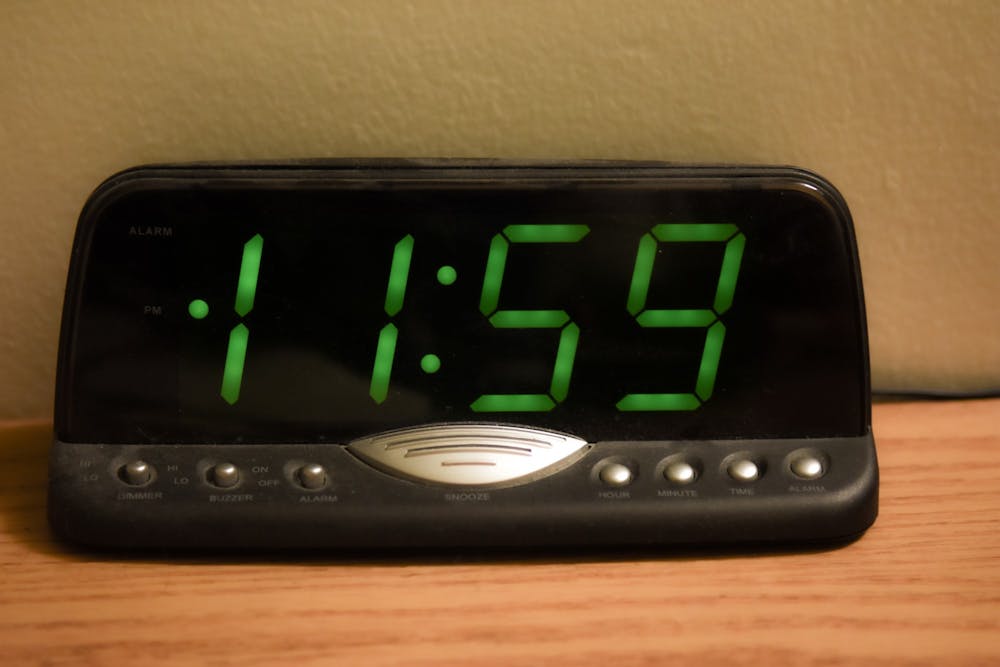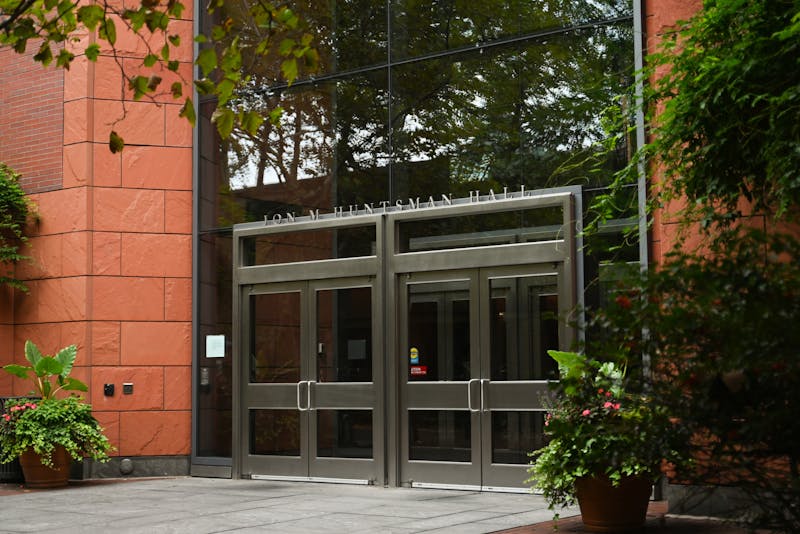
Santa-Cruz argues that education becoming so technologized has resulted in an unclear time separation between work and personal life.
Credit: Benjamin McAvoy-BickfordTeaching and higher education are now completely reliant on students’ use of technology. It’s a rare occurrence that material is shared with students in physical form, and sites such as Canvas and Google Classroom have become educational staples. There are many benefits to this model of higher education: it’s much easier to only keep track of a computer for all classes, rather than having a binder full of papers across many different classes. It provides streamlining abilities to students that are unparalleled and substantially cuts prices associated with purchasing physical organization tools and materials.
However, a sizable tradeoff of education becoming so technologized is that work now bleeds too much into our personal lives. There’s less separation between work, school, and personal life when technology serves as a medium to complete tasks related to all three. The same device we use to complete homework, schedule interviews, and do research also doubles as a tool of entertainment and a social outlet.
There’s never a clear time separation between the two, either. After dinner with friends on a Friday night, we may have a deadline for an essay at midnight. These arbitrary times that don’t align with the time we allot for school or work related hours extend the professional and educational day into our personal and leisure time.
A New York Times article describes a joke about wanting to stop looking at the “BAD SCREEN” to look at the “GOOD SCREEN.” The author further explains that “the ‘bad screen,’ in this case, is the work computer on which one does dreary things like scheduling meetings and compiling spreadsheets. The ‘good screen’ is the personal computer, on which one does fun things like scheduling meet-ups with friends, at bars, restaurants or at other people’s houses.
The irony of this joke is that for students, the “bad screen” is only one click away from the “good screen.” Thus, the staunch line that used to separate work lives (and in our case as students, educational) and personal lives is no longer what it used to be. I can’t help but be jealous of the reality that existed only 20 or 30 years ago: leaving the physical workspace meant being unreachable until you returned.
One might argue, rightfully so, that technology is good in this way. Some justify technology bleeding so heavily into our personal lives in the name of productivity. After all, we must have become more productive with technology augmenting our abilities to research and accomplish tasks. But, how much more productive does technology make us, when it’s leeching away at our hours that used to be reserved for personal leisure and regeneration?
Although technology’s role in work-life balance is modern, the central question of balancing work and leisure has been salient since Aristotle’s time. On one hand, Aristotle describes work as being extrinsically good: good for the purpose of others and society as a whole. On the other hand, Aristotle describes leisure as being intrinsically good: good for us personally, to lead richly fulfilling and, hopefully, happy lives.
And how he describes leisure is not what we might think in our modern, commercialized, entertainment-focused society. According to American philosopher Gary Gutting, “the leisure Aristotle has in mind is productive activity enjoyed for its own sake, while work is done for something else.” Furthermore, another conception of Aristotelian leisure is “the state or condition of being free from the urgent demand of lower level needs to devote oneself to purely intellectual life.” In this case, intellectual life can mean many things: the pursuit of knowledge through methods that we personally enjoy such as music, art, literature. Notably, a prerequisite to achieve this state of living is a staunch separation from the burdens of the workplace.
This lack of separation in the modern educational setting contributes to a gross invasion of personal time and a decrease in our capacity for leisurely pursuits. The structure of American society, which is fundamentally rooted in the capitalist notion that economic productivity is of chief importance, has permeated most facets of our lives. At Penn, it’s rare that someone would use their free time for an intellectual pursuit without the end goal of adding it to their resume.
Besides, we’re burnt out. At least I am. In the free time I do have — the rare times I’m not stressing about another arbitrary deadline in the virtual world — I feel little excitement at the prospect of pursuing an enriching leisurely activity. Thus, I can only imagine the horror with which Aristotle would observe the world we now live in.
I don’t believe that assigning less work is a solution to this problem. I resolutely believe that aligning the time of our deadlines must align with the times that we work to enable students to live lives outside the workspace that encourage us to enjoy and pursue leisure, guilt-free.

ALLISON SANTA-CRUZ is a College second year studying communications from Jackson, Miss. Her email address is allisant@sas.upenn.edu.
The Daily Pennsylvanian is an independent, student-run newspaper. Please consider making a donation to support the coverage that shapes the University. Your generosity ensures a future of strong journalism at Penn.
Donate






